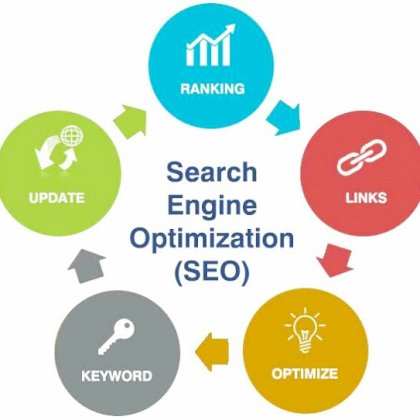What is Marketing 4.0?Embracing Digital Transformation in Marketing 4.0

marketing 4.0 Marketing 4.0 is a concept that encompasses the transformation of traditional marketing strategies and practices in the digital age. With the advent of technology and the rise of social media, businesses have been forced to adapt to a new marketing landscape. Marketing 4.0 emphasizes the importance of customer engagement and personalization through targeted advertising campaigns, social media interactions, and data analysis. This approach recognizes the shift in consumer behavior, as they are now more empowered and connected than ever before. In Marketing 4.0, businesses need to utilize advanced digital tools and channels to reach their target audience effectively and efficiently, ultimately driving business growth and success.
What is Marketing 4.0?
In the fast-paced digital era, traditional marketing approaches are rapidly becoming obsolete. With the emergence of new technologies and changing consumer behavior, businesses need to adapt to a new paradigm: Marketing 4.0. This article will explain the concept of Marketing 4.0 and how it revolutionizes the way companies connect with their target audience.
Marketing 4.0 is a term coined by renowned marketing expert Philip Kotler. It refers to the integration of online and offline marketing strategies, utilizing digital tools and platforms to engage customers and build lasting relationships. In today's interconnected world, companies must meet customers where they are, whether it's on social media, search engines, or mobile devices.
One of the key features of Marketing 4.0 is its emphasis on customer engagement and personalized experiences. With the wealth of data available, businesses can now create targeted campaigns tailored to individuals' preferences and interests. This level of personalization helps companies build trust and loyalty, increasing customer satisfaction and brand advocacy.
Another significant aspect of Marketing 4.0 is the role of content marketing. Instead of focusing solely on advertising and promotional messages, businesses are now leveraging valuable content to attract and engage customers. By providing informative articles, videos, and interactive experiences, companies are positioning themselves as trusted advisors in their respective industries.
Furthermore, Marketing 4.0 takes advantage of the power of social media and influencer marketing. With billions of users active on social platforms, brands can leverage these channels to amplify their messages and connect with their target audience. Influencer marketing, on the other hand, allows brands to tap into the massive following of influencers to reach a wider audience and enhance brand credibility.
SEO plays a crucial role in Marketing 4.0. Optimizing web content for search engines is necessary to increase visibility and drive organic traffic. By strategically incorporating relevant keywords in titles, meta descriptions, and throughout the content, businesses can improve their search rankings and attract qualified leads.
In conclusion, Marketing 4.0 represents a new era of marketing that embraces the digital landscape and leverages technology to connect with customers. By focusing on personalized experiences, valuable content, social media, and SEO, businesses can thrive in this ever-evolving marketing landscape. Embracing Marketing 4.0 is essential for companies that aim to stay relevant and effectively engage with their target audience.
Key Principles of Marketing 4.0
Marketing has evolved significantly over the years, and the emergence of Marketing 4.0 has brought about a new set of principles that businesses need to embrace. In this article, we will explore the key principles of Marketing 4.0 and how they can revolutionize your marketing efforts.
Understanding the Customer Journey: One of the fundamental principles of Marketing 4.0 is understanding the customer journey in its entirety. Gone are the days of linear marketing funnels. Marketers need to embrace a holistic approach and map out the entire customer journey, from the first touchpoint to the final conversion. By understanding the different stages of the journey, marketers can create personalized and targeted experiences for their customers.
Data-Driven Decision Making: In Marketing 4.0, data plays a crucial role in decision making. Marketers need to leverage data analytics to gain insights into customer behavior and preferences. By analyzing data, marketers can make informed decisions and optimize their marketing strategies for better results. Data-driven decision making allows marketers to identify trends, target specific customer segments, and measure the success of their campaigns.
- Embracing Technology: Another key principle of Marketing 4.0 is embracing technology. With the rise of digital platforms and the internet, marketers need to leverage technology to reach their target audience effectively. From social media marketing to email automation, technology offers various tools and channels to engage with customers. Marketers need to stay updated with the latest technological advancements and incorporate them into their marketing strategies.
- Building Brand Communities: Marketing 4.0 emphasizes the importance of building brand communities. Brands need to go beyond traditional advertising and focus on building relationships with their customers. By creating a sense of community, brands can foster loyalty and advocacy among their customers. This can be done through personalized communications, exclusive events, and engaging content that resonates with the target audience.
- Personalization and Customization: In Marketing 4.0, generic marketing messages no longer cut it. Customers expect personalized and customized experiences from brands. Marketers need to leverage data and technology to deliver tailored messages and offers to their customers. By personalizing the customer experience, brands can create stronger connections and increase customer satisfaction and loyalty.
Measurement and Analytics: Finally, Marketing 4.0 stresses the importance of measuring and analyzing marketing efforts. Marketers need to set clear goals and define key performance indicators (KPIs) to track the success of their campaigns. By analyzing data and measuring the impact of marketing activities, marketers can make informed decisions and optimize their strategies for better results. Measurement and analytics provide valuable insights into customer behavior, campaign performance, and ROI.
In conclusion, embracing the key principles of Marketing 4.0 can revolutionize your marketing efforts. By understanding the customer journey, making data-driven decisions, embracing technology, building brand communities, personalizing experiences, and measuring results, marketers can stay ahead in today's competitive landscape. So, start implementing these principles and take your marketing to the next level.
Embracing Digital Transformation in Marketing 4.0
As the digital era continues to evolve, businesses must adapt and embrace digital transformation in order to stay competitive in Marketing 4.0. This new era of marketing is characterized by the integration of digital technologies, data-driven decision making, and customer-centric strategies. In this article, we will explore the key aspects of embracing digital transformation in Marketing 4.0 and how it can benefit your business.
Understanding Digital Transformation
Digital transformation refers to the process of leveraging digital technologies to streamline operations, enhance customer experiences, and drive business growth. It involves the integration of various technologies such as artificial intelligence, big data analytics, cloud computing, and social media platforms.
In Marketing 4.0, digital transformation is vital for businesses to effectively reach and engage with their target audience. It enables personalized marketing campaigns, real-time data insights, and seamless customer experiences across multiple digital touchpoints.
The Benefits of Embracing Digital Transformation
Embracing digital transformation in Marketing 4.0 offers numerous benefits for businesses:
| Benefits | Description |
|---|---|
| Improved Customer Engagement | By leveraging digital channels, businesses can interact with their customers in a more personalized and meaningful way. This leads to increased customer satisfaction and loyalty. |
| Enhanced Data-driven Decision Making | Digital transformation allows businesses to collect, analyze, and interpret vast amounts of data. This data-driven approach enables informed decision making and targeted marketing strategies. |
| Increased Operational Efficiency | Automation of processes and workflows through digital technologies improves operational efficiency, reduces costs, and enables businesses to allocate resources more effectively. |
| Expanded Market Reach | Digital channels provide businesses with the opportunity to reach a global audience. This opens up new market segments and increases revenue potential. |
Strategies for Successful Digital Transformation
In order to successfully embrace digital transformation in Marketing 4.0, businesses should consider the following strategies:
- Develop a Clear Strategy: Define clear objectives, goals, and timelines for your digital transformation journey. Align your strategy with your business vision and customer needs.
- Invest in Digital Infrastructure: Utilize the right technologies and platforms that align with your business goals. This may include investing in cloud-based systems, data analytics tools, and marketing automation software.
- Empower your Team: Provide adequate training and resources to empower your team to adapt to digital changes. Foster a culture of experimentation, innovation, and continuous learning.
- Customer-centric Approach: Prioritize customer needs and preferences in your digital initiatives. Use data insights to personalize customer experiences and deliver relevant and timely content.
- Stay Agile: Embrace agility and adaptability in the face of rapid technological advancements. Continuously monitor and evaluate the effectiveness of your digital strategies and make necessary adjustments.
In conclusion, embracing digital transformation in Marketing 4.0 is essential for businesses to stay relevant and competitive in the digital age. By leveraging digital technologies, businesses can enhance customer engagement, drive data-driven decision making, improve operational efficiency, and expand their market reach. It is crucial to develop a clear strategy, invest in the right infrastructure, empower your team, and prioritize customer-centric approaches in order to successfully embrace digital transformation.
Importance of Customer Experience in Marketing 4.0
In today's digital age, customer experience plays a crucial role in the success of any business. With the emergence of Marketing 4.0, which focuses on personalized and interactive marketing strategies, prioritizing customer experience has become more important than ever before.
Customer experience refers to the overall perception a customer has of a brand based on their interactions and experiences throughout their journey. It encompasses every touchpoint, from the initial awareness stage to post-purchase support. Providing a positive and seamless customer experience can lead to increased customer satisfaction, loyalty, and advocacy.
One of the key reasons why customer experience is vital in Marketing 4.0 is the increasing power of consumers. With the abundance of information available online, customers are more knowledgeable and have higher expectations. They demand personalized and relevant experiences tailored to their specific needs and preferences.
By delivering exceptional customer experiences, businesses can differentiate themselves from the competition. According to a study conducted by PwC, 73% of consumers consider customer experience as an essential factor in their purchasing decisions. Brands that invest in creating memorable experiences gain a competitive edge and are more likely to attract and retain customers.
Moreover, positive customer experiences have a direct impact on brand perception and reputation. Customers who have been delighted with a brand's service are more likely to become brand advocates and recommend the brand to others. This word-of-mouth marketing can significantly contribute to the brand's growth and success.
Another advantage of focusing on customer experience in Marketing 4.0 is the potential for increased customer lifetime value. When customers have a positive experience, they are more likely to become repeat customers and make additional purchases. By nurturing customer relationships and delivering personalized experiences, businesses can increase customer loyalty and maximize their revenue.
To excel in Marketing 4.0 and provide exceptional customer experiences, businesses need to leverage technology and data. By analyzing customer data, brands can gain valuable insights into customer preferences, behaviors, and pain points. This data-driven approach allows businesses to tailor their marketing strategies and communication to meet the unique needs of each customer.
In conclusion, the importance of customer experience in Marketing 4.0 cannot be overstated. By prioritizing customer experience, businesses can gain a competitive advantage, enhance brand perception, and increase customer loyalty. Investing in creating personalized and relevant experiences that exceed customer expectations will undoubtedly contribute to the success and growth of any business in today's digital landscape.
Leveraging Data and Analytics in Marketing 4.0
In today's digital age, data and analytics play a crucial role in the success of marketing strategies. With the advent of Marketing 4.0, where technology has become an integral part of every aspect of business, leveraging data effectively can provide a competitive edge to companies.
Data-driven marketing strategies enable businesses to understand customer behavior, preferences, and needs. By analyzing data, companies can tailor their marketing efforts to target specific segments and personalize their messaging. This approach allows businesses to create relevant and engaging content that resonates with their target audience.
One of the key advantages of data and analytics in Marketing 4.0 is the ability to measure the performance of marketing campaigns accurately. By tracking key metrics such as click-through rates, conversion rates, and customer engagement, companies can make data-driven decisions to optimize their marketing efforts and achieve better results. This data-driven approach eliminates the guesswork and provides concrete insights into campaign performance.
Additionally, data and analytics enable businesses to stay ahead of the competition by identifying emerging trends and predicting future consumer behavior. By analyzing large datasets and employing advanced algorithms, companies can uncover valuable insights that can guide their marketing strategies. This proactive approach allows businesses to adapt quickly to changing market dynamics and gain a competitive advantage.
| Data and Analytics in Marketing 4.0 |
|---|
| Improved targeting and personalization |
| Accurate measurement of campaign performance |
| Prediction of future consumer behavior |
| Proactive adaptation to market dynamics |
It's important to note that leveraging data and analytics in Marketing 4.0 requires a comprehensive understanding of data privacy and compliance regulations. Companies must prioritize data security and obtain necessary consent from customers when collecting and analyzing data.
Furthermore, it is essential to integrate data and analytics into the overall marketing strategy rather than viewing it as an isolated function. By aligning data-driven insights with creative marketing tactics, businesses can create holistic strategies that deliver meaningful results.
In conclusion, data and analytics are indispensable tools in Marketing 4.0. By harnessing the power of data, businesses can gain valuable insights, improve targeting and personalization, measure campaign performance accurately, and stay ahead of the competition. However, it is crucial to handle data ethically and comply with regulations to build trust with customers. Embracing data-driven strategies and adopting a proactive approach to marketing can position businesses for success in the digital era.
For more information about Leveraging Data and Analytics in Marketing 4.0, please visit this link.
Implementing Personalization in Marketing 4.0
Marketing is a constantly evolving field, and with the advent of technology, it has become even more complex. In today's digital age, personalization has emerged as a powerful tool for marketers to engage with their audience and create meaningful connections.
Marketing 4.0, a term coined by Philip Kotler, refers to the era of marketing where technology and digital connectivity play a significant role. In this era, personalized marketing strategies are essential for businesses to stand out from the competition and deliver exceptional customer experiences.
So, how can businesses implement personalization in their marketing efforts? Let's explore some effective strategies:
Data-Driven Marketing
Personalization begins with understanding your audience deeply. Collecting and analyzing data about your customers' preferences, behavior, and demographics allows you to create targeted and relevant marketing campaigns. Use tools like CRM systems, customer surveys, and analytics software to gather valuable insights.
Segmentation and Targeting
Once you have the data, segment your audience into various groups based on their characteristics. This segmentation allows you to tailor your marketing messages and offers to specific customer segments. By delivering personalized content to the right audience, you can increase engagement and conversions.
Dynamic Content
Dynamic content refers to the ability to deliver personalized content based on a user's preferences and past interactions. This can be achieved through website personalization, email marketing, or even personalized product recommendations. Using AI and machine learning algorithms, businesses can create a unique experience for each customer.
Automated Email Campaigns
Email marketing is still one of the most effective channels for personalized communication. By setting up automated email campaigns, you can send relevant and timely content to your subscribers based on their behavior and preferences. Personalized subject lines, product recommendations, and exclusive offers can significantly improve email engagement.
Personalized Ads
Utilize the power of online advertising platforms to deliver personalized ads to your target audience. Platforms like Google Ads and Facebook Ads offer sophisticated targeting options that allow you to reach specific demographics, interests, and browsing behaviors. Make sure to create relevant ad copies and landing pages for each target audience.
Social Media Personalization
Social media platforms provide a wealth of data about your audience. Utilize this data to create personalized experiences on social media. Tailor your content, ads, and interactions to align with each user's preferences and interests. Engage with your followers through personalized replies and direct messages.
In conclusion, personalization is no longer a luxury but a necessity in today's competitive marketing landscape. By implementing personalization strategies in Marketing 4.0, businesses can forge stronger connections with their audience, increase customer loyalty, and drive significant business growth.
Remember, personalization is all about understanding your audience, segmenting them, delivering dynamic content, and utilizing the power of automation and data-driven insights. Embrace personalization, and your marketing efforts will yield impressive results in the digital age.
Strategies for Engaging with Gen Z in Marketing 4.0
Generation Z, also known as Gen Z, refers to the demographic group of individuals who were born between the mid-1990s and the early 2000s. With their unique characteristics and preferences, it is crucial for businesses to develop effective strategies to engage with this generation in the era of Marketing 4.0. In this article, we will explore some successful approaches that can help businesses connect with Gen Z and drive their marketing efforts.
1. Authenticity is Key
Gen Z values authenticity more than any other generation. They can easily detect insincerity and are drawn towards genuine, real experiences. It is important for businesses to maintain transparency and authenticity in their brand messaging and communications. Authenticity fosters trust and a sense of connection with Gen Z, making them more likely to engage and build a long-lasting relationship with a brand.
2. Embrace Social Media Platforms
Gen Z is the first generation that grew up fully immersed in the digital world. They are highly active on various social media platforms, such as Instagram, Snapchat, and TikTok. Businesses need to invest in creating relevant and engaging content on these platforms to capture the attention of Gen Z. It is essential to understand the unique features and trends of each platform and tailor the content accordingly. Consistency and frequent interaction are key to maintaining a strong presence and engaging Gen Z effectively.
3. Mobile-First Approach
Gen Z is known for their constant usage of smartphones. Businesses must prioritize a mobile-first approach to reach this generation. Websites and marketing campaigns should be optimized for mobile devices, ensuring a seamless and user-friendly experience. Mobile apps, push notifications, and responsive design are all essential elements to consider in a successful marketing strategy for Gen Z.
4. Influencer Marketing
Influencer marketing has gained significant popularity among Gen Z. They trust the opinions and recommendations of their favorite social media influencers. Collaborating with influencers who align with your brand values can be an effective way to reach and engage with Gen Z. However, it is crucial to select influencers that resonate with your target audience and have a genuine connection with their followers.
5. Interactive and Personalized Experiences
Gen Z craves experiences that are interactive and personalized. They desire to actively participate and be a part of the brand journey. Businesses can leverage emerging technologies, such as augmented reality and virtual reality, to create immersive and personalized experiences. Offering interactive quizzes, polls, and personalized recommendations are also effective tactics to engage with this generation.
6. Social and Environmental Responsibility
Gen Z is socially and environmentally conscious. They expect businesses to demonstrate commitment towards sustainability and social responsibility. Integrating social and environmental initiatives into your brand values can resonate deeply with Gen Z. Communicate your efforts transparently and authentically, and Gen Z will be more inclined to support and engage with your brand.
Conclusion
In the era of Marketing 4.0, understanding and effectively engaging with Gen Z is vital for businesses. By prioritizing authenticity, embracing social media, adopting a mobile-first approach, utilizing influencer marketing, providing interactive and personalized experiences, and demonstrating social and environmental responsibility, businesses can successfully connect with and engage this generation. Stay updated with the latest trends and preferences of Gen Z, and adapt your marketing strategies accordingly to stay ahead in today's competitive landscape.
The Future of Marketing 4.0: Trends and Predictions
In today's fast-paced digital world, the field of marketing is constantly evolving. With the rise of technology and the ever-changing needs of consumers, marketers are always looking for new and innovative ways to reach their target audience. This article will explore the future of marketing 4.0 and discuss the trends and predictions that will shape the industry.
Artificial Intelligence and Machine Learning
One of the biggest trends in marketing 4.0 is the integration of artificial intelligence (AI) and machine learning. AI has the ability to analyze large amounts of data, allowing marketers to better understand consumer behavior and personalize their marketing efforts. Machine learning algorithms can identify patterns and make real-time decisions, enabling marketers to deliver more targeted and relevant content to their audience.
With AI and machine learning, marketers can automate tasks such as data analysis, campaign optimization, and customer segmentation. This frees up time for marketers to focus on strategy and creative thinking, leading to more effective marketing campaigns.
Virtual and Augmented Reality
Virtual reality (VR) and augmented reality (AR) have been gaining popularity in recent years, and they are poised to revolutionize the marketing industry. VR allows consumers to immerse themselves in a virtual environment, while AR overlays digital elements onto the real world. These technologies provide marketers with new opportunities to engage and interact with their audience.
In the future, VR and AR can be used to create immersive brand experiences, allowing consumers to visualize products before making a purchase. They can also be utilized for virtual tours, interactive advertisements, and gamification, providing a unique and memorable experience for consumers.
Voice Search and Smart Assistants
As voice search technology continues to improve, it is becoming increasingly important for marketers to optimize their content for voice queries. Smart assistants like Amazon Alexa and Google Assistant are now household names, and they are changing the way people search for information.
Marketers should adapt their SEO strategies to include voice search optimization, such as using natural language keywords and creating conversational content. This will help them rank higher in voice search results and reach a wider audience.
Data Privacy and Security
With the increasing amount of data collected by marketers, data privacy and security have become major concerns. Consumers are becoming more aware of their rights and are demanding transparency and control over their personal information.
In the future, it will be crucial for marketers to prioritize data privacy and security. Implementing secure data storage and handling practices, obtaining explicit consent for data collection, and being transparent about data usage will help build trust with consumers and protect their privacy.
Conclusion
The future of marketing 4.0 is exciting and full of possibilities. With the integration of AI and machine learning, the rise of VR and AR, the popularity of voice search, and the focus on data privacy and security, marketers have ample opportunities to connect with their audience and deliver personalized and immersive experiences.
As the field continues to evolve, it is important for marketers to stay up-to-date with the latest trends and adapt their strategies accordingly. By embracing these innovations, marketers can stay ahead of the competition and drive growth in the digital age.
Frequently Asked Questions about Marketing 4.0
Marketing 4.0 is a marketing strategy that focuses on leveraging digital technologies and data to create personalized and interactive customer experiences. It involves using social media, mobile platforms, automation, analytics, and artificial intelligence to engage and connect with customers.
Marketing 4.0 differs from traditional marketing by emphasizing the importance of technology, data, and customer-centricity. It integrates online and offline marketing channels, uses real-time data for decision-making, and focuses on building long-term relationships with customers through personalized experiences.
The key components of Marketing 4.0 include digital marketing strategies, customer segmentation and targeting, content creation, social media marketing, mobile marketing, data analytics, marketing automation, and artificial intelligence.
Businesses can benefit from Marketing 4.0 by reaching a wider audience, improving customer engagement and satisfaction, delivering personalized experiences, making data-driven decisions, optimizing marketing campaigns, and staying competitive in the digital era.
Some examples of Marketing 4.0 strategies include social media advertising, influencer marketing, personalized email marketing, mobile app marketing, chatbot interactions, automated lead nurturing, and AI-powered recommendation engines.
To implement Marketing 4.0, businesses should assess their digital readiness, define their customer personas, create relevant and engaging content, leverage social media platforms, adopt marketing automation tools, analyze data to gain insights, and continuously adapt their strategies based on feedback and performance.
Some challenges of implementing Marketing 4.0 include data privacy concerns, finding skilled digital marketing professionals, integrating different marketing technologies, managing and analyzing large amounts of data, and keeping up with the rapidly evolving digital landscape.
Some future trends in Marketing 4.0 include increased use of AI and machine learning, hyper-personalization, voice search optimization, augmented reality marketing, chatbot advancements, influencer marketing, and the adoption of new social media platforms.
Businesses can measure the success of their Marketing 4.0 strategies by analyzing relevant metrics such as website traffic, conversion rates, social media engagement, customer satisfaction scores, sales revenue, return on investment (ROI), and customer lifetime value (CLV).
There are many online resources available to learn more about Marketing 4.0. You can find articles, books, online courses, webinars, and industry conferences that provide insights and best practices for implementing Marketing 4.0 strategies.
 English
English
 Turkish
Turkish 





















